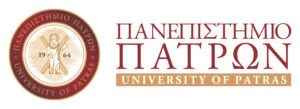Philosophy delves into the essence of human knowledge, delimits the boundaries of our cognitive faculties, and scrutinizes the trustworthiness of our investigative approaches. Philosophers examine the epistemic and scientific procedures that underpin contemporary science and education, while also dissecting their ethical and political implications. For those aspiring to excel in the realm of science education research, it proves advantageous to confront preconceived notions about concepts like knowledge, science, nature, empirical investigation, education, and reliability. Acquainting oneself with the philosophical dilemmas and theories can aid in formulating precise research inquiries, refining the fundamental terminology employed in one’s study, scrutinizing diverse research methodologies, and, in essence, sharpening their scientific practice. Furthermore, this philosophical grounding can bolster one’s teaching endeavors by furnishing epistemologically sound methods and persuasive arguments.
Selected publications
-
Dimopoulou, G., & Gasparatou, R. (2023). Dewey and Rousseau on Experience-Based Science Education. Science & Education, 1-13. https://doi.org/10.1007/s11191-023-00477-w
-
Gasparatou R. (2023). Science education & the tightrope between scientism and relativism: a Wittgensteinian balancing act. In P. Standish & A. Skilbeck (eds), Wittgenstein and Education: On Not Sparing Others the Trouble of Thinking (pp. 56-66). Wiley Publishers.
-
Valanidou, E., Ergazaki, M., & Gasparatou, R. (2020). Using philosophy-inspired categorization strategies to design a learning environment about biological classification: A case study with 4th graders. In Levrini, O. & Tasquier, G. (Eds.), The beauty and pleasure of understanding: engaging with contemporary challenges through science education, Proceedings of the ESERA 2019 Conference, Part 16, pp. 1894-1903. Bologna: ALMA MATER STUDIORUM – University of Bologna. 978-88-945874-0-1978-88-945874-0-1
-
Gasparatou, R., Ergazaki, M., & Kosmopoulou, N. (2020). Using Philosophy for Children to introduce the living/non-living distinction in kindergarten. International Journal of Early Years Education,1-16.
-
Gasparatou, R. (2019). Understanding the sciences: a quasi-Wittgensteinian note on NOS. Cultural Studies of Science Education, 14(3), 577-586.
-
Gasparatou R. (2017). Scientism and Scientific Thinking: A Note on Science Education, Science & Education, 26(7-9), 799-812.
-
Gasparatou, R., & Ergazaki, M. (2016). Could philosophy inform biology education?. Educational Journal of the University of Patras UNESCO Chair, 3(2), 29-35.
